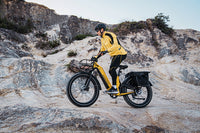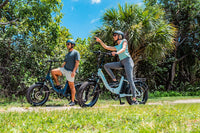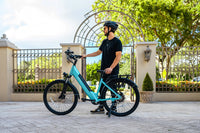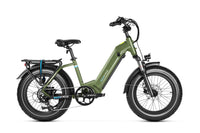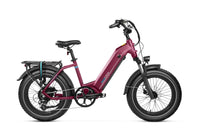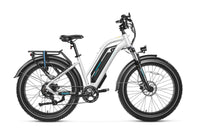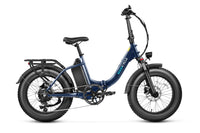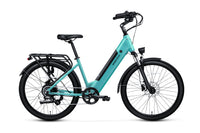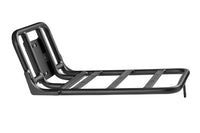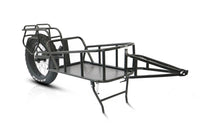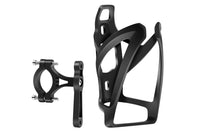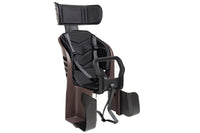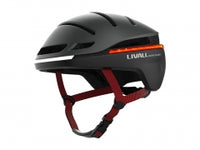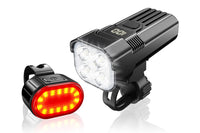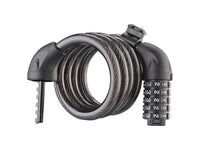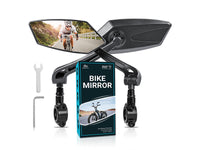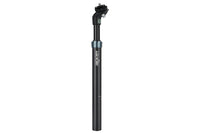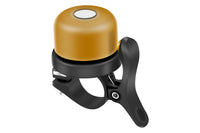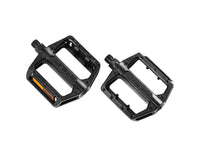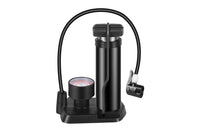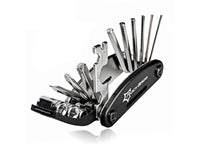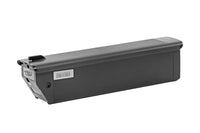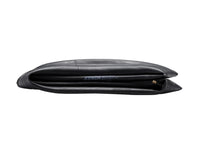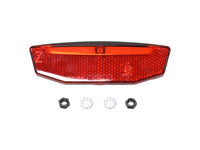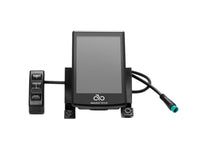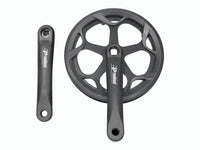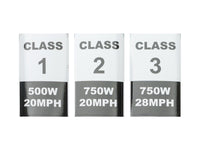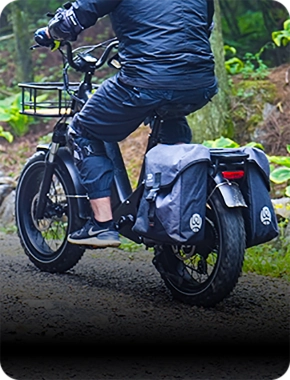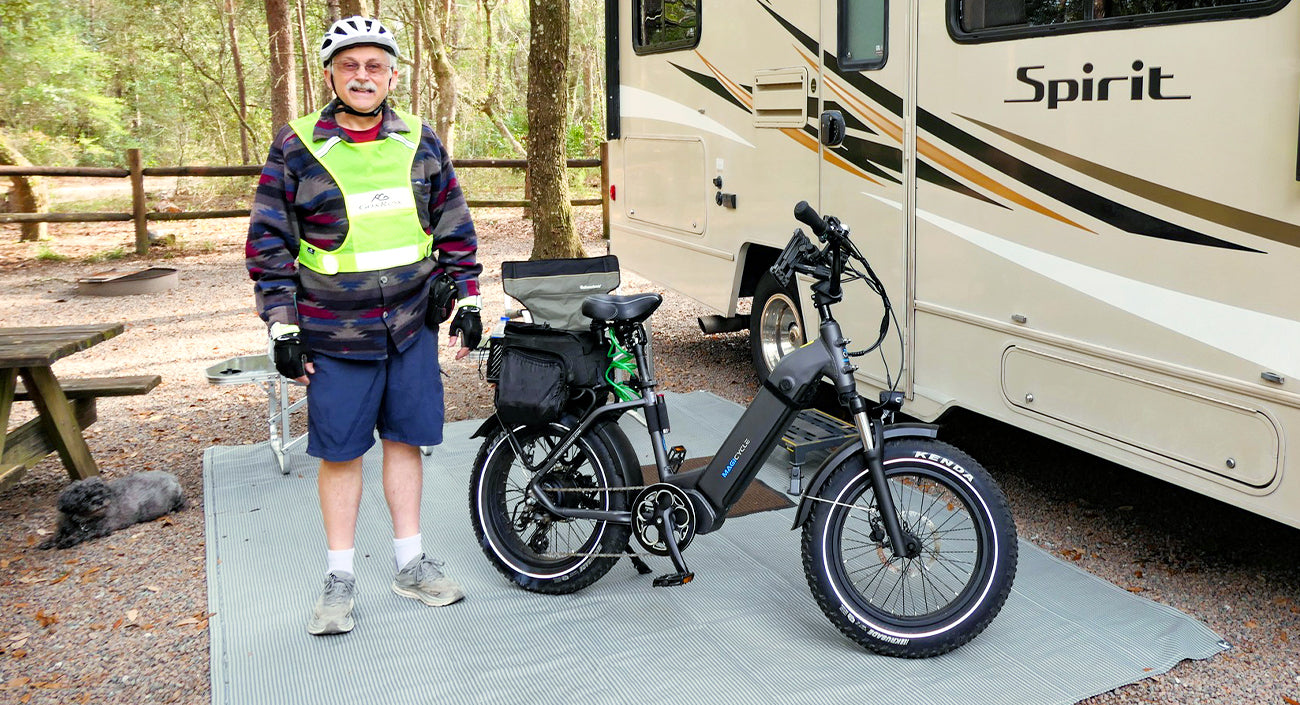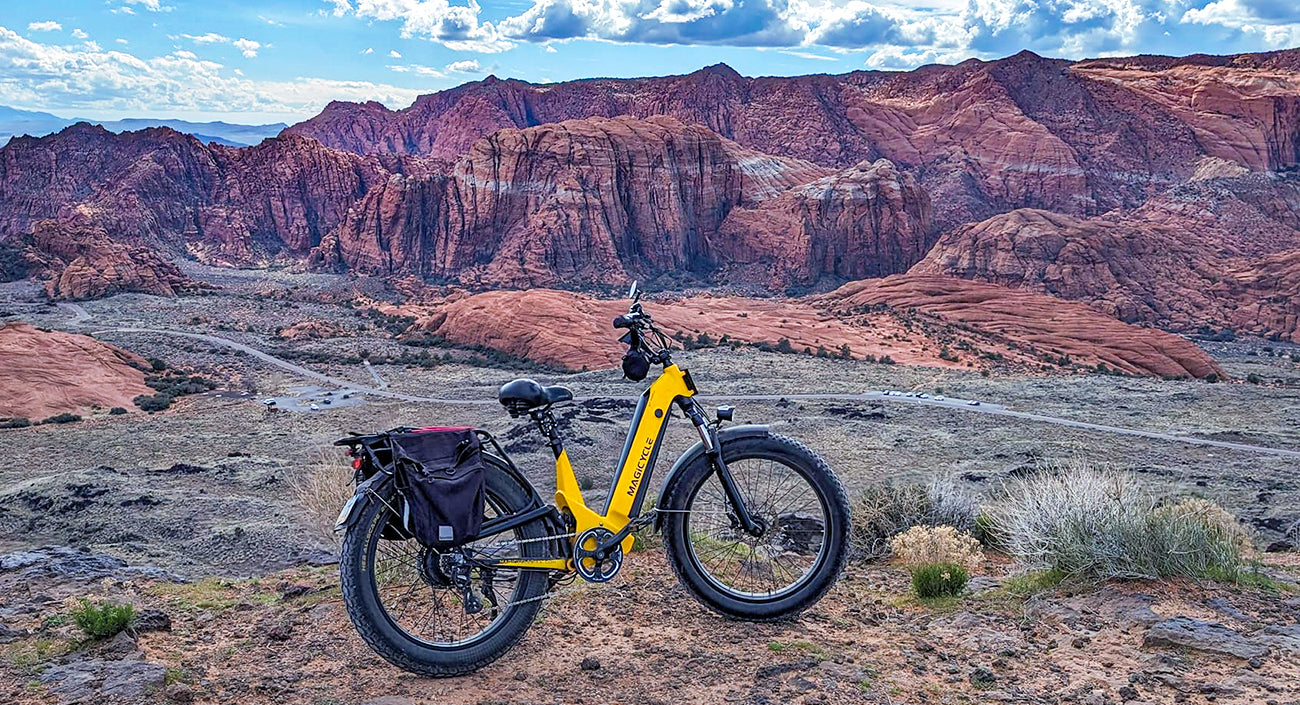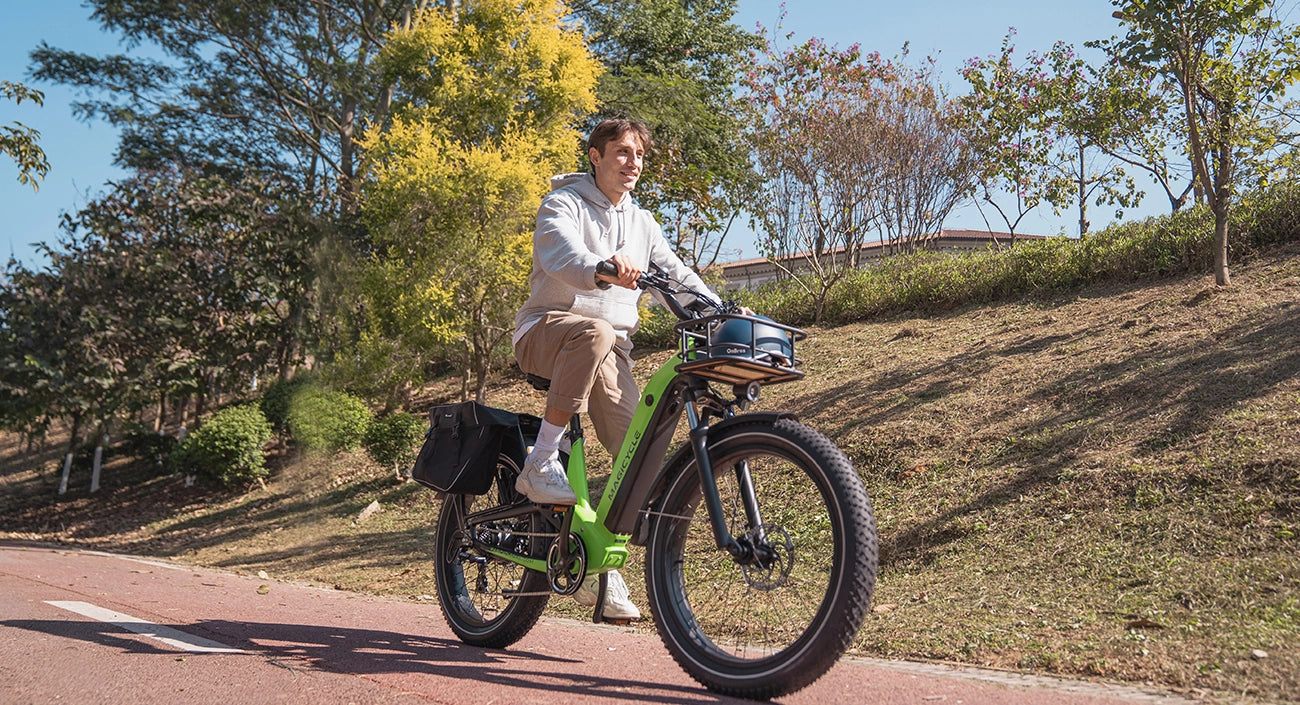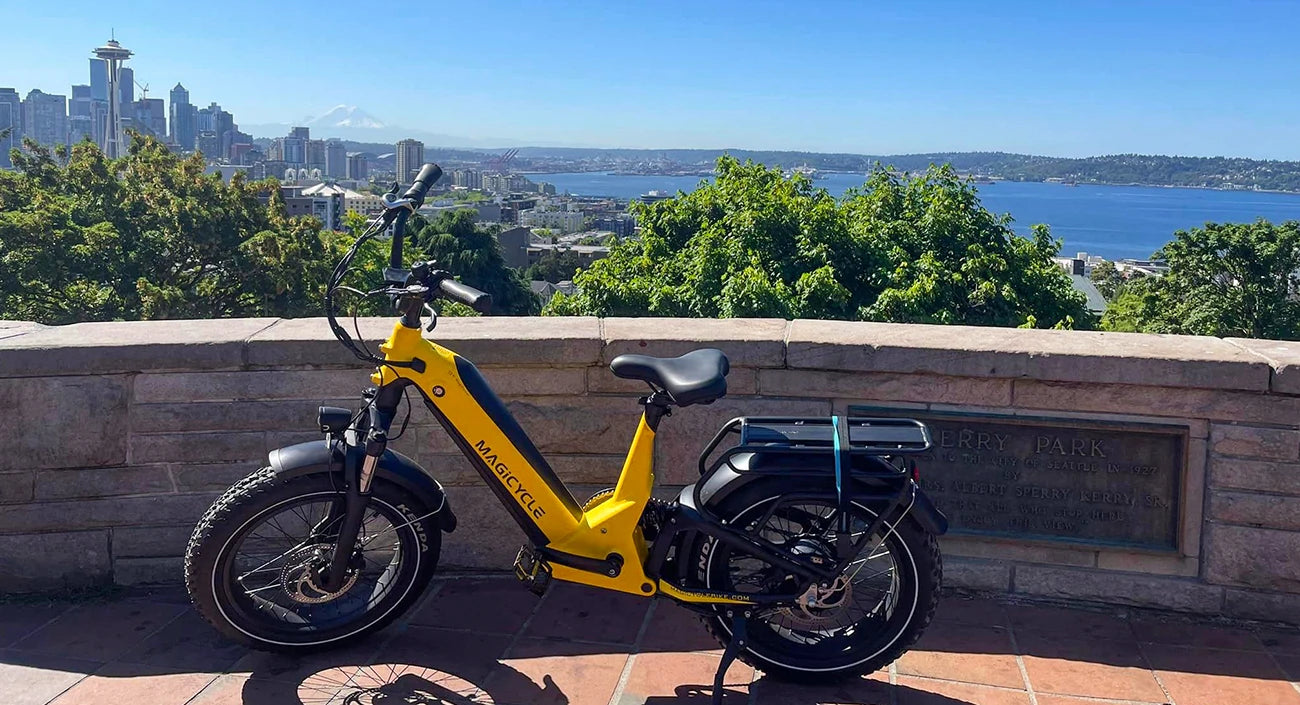 November 23,2024
November 23,2024
 November 23,2024
November 23,2024
Quick Answer
Absolutely, an electric bicycle is great for city commuting! It's eco-friendly, dodges traffic jams, and you won't arrive sweaty. Plus, it's fun!
Riding on city streets can be a challenge, with congested traffic and the daily grind taking its toll. Electric bikes (e-bikes) offer a promising solution, merging the traditional cycling experience with the convenience of modern technology. In this article, we'll tell how eBikes play a role in the urban landscape, making commutes quicker, less strenuous, and more enjoyable. Read more, and you can decide if going electric is the right move for your metropolitan travels.
What Are the Real Challenges of Urban Commuting?
1. Safety Concerns
Navigating crowded city streets without dedicated bike lanes puts cyclists at risk of collisions with cars and trucks.
2. Unpredictable Weather
Rain, snow, and extreme temperatures can make the commute unpleasant or even dangerous, leading to an unprofessional appearance upon arrival.
3. Long Distances
Covering several miles to and from work can be physically demanding, especially for those who aren't regular cyclists.
4. Professional Appearance
The need to maintain a polished, put-together look for work often conflicts with the realities of bike commuting.
5. Hazardous Road Conditions
Potholes, slick surfaces, and other obstacles require constant vigilance, adding to the mental strain of the daily commute.

How Electric Bicycles Can Solve Urban Commuting Challenges
Improved Safety
Electric bicycles provide an extra boost of speed and power, allowing riders to keep up with the flow of traffic and avoid potentially dangerous situations. The electric assist can also make it easier to navigate hazardous road conditions, such as potholes or slippery surfaces.
Weather Protection
Many electric bikes come equipped with features like fenders, chain guards, and water-resistant frames that help shield riders from the elements. This can ensure you arrive at your destination dry and presentable, even in inclement weather.
Extended Range
The electric motor on e-bikes provides an added boost of power, making it easier to cover longer distances with less physical exertion. This allows commuters to live farther from their workplaces without sacrificing their fitness or arriving exhausted.
Professional Appearance
Electric bicycles typically allow riders to maintain a more upright, relaxed posture compared to traditional bikes. This, combined with the reduced effort required, can help prevent sweating and disheveled clothing, enabling a polished, office-ready look upon arrival.
Customizable Assistance
The adjustable power levels on many electric bikes give commuters the ability to choose how much assistance they need. This means you can opt for a more strenuous workout on the way home while relying on the electric boost for the more challenging segments of your route.
Electric bicycles provide a versatile and practical solution that can make the daily journey to work a more enjoyable and stress-free experience.
Electric vs. Traditional Bikes
| Feature | eBike | Traditional Bicycle |
| Physical Exertion | Low - motor assistance reduces effort. | High - full physical effort required for propulsion. |
| Accessibility | High - easier to use for those with physical limitations. | Moderate - requires good physical fitness and ability. |
| Maintenance | Higher - requires specialized services for electronic components. | Lower - simpler mechanics, can often be self-serviced. |
| Storage & Security | Needs secure, theft-proof storage and protection from elements. | Requires safe storage but less of a target for thieves, fewer environmental concerns. |
| Environmental Impact | Lower than cars but higher than traditional bikes due to battery use. | Minimal - human-powered, no emissions. |
| Energy Efficiency | High compared to cars, but requires charging. | Most efficient - no energy input beyond human power. |
| Cost-Efficiency | Long-term savings on transport costs, higher initial investment. | More cost-effective upfront and over time. |
| Battery Concerns | Requires responsible disposal/recycling of batteries. | None - no battery used. |
How to Choose the Right Bike: eBikes vs. Traditional Bicycles for Different User Groups
Older Adults and Individuals with Disabilities
If you are an older adult or have physical limitations that make manual pedaling challenging, an eBike is likely the better choice for you. The electric motor on eBikes provides a much-needed boost, allowing you to enjoy the freedom of two-wheeled transportation without the strain of intense physical exertion. The sweat-free, low-effort ride of an eBike is particularly well-suited for this user group.
Eco-Minded Commuters
If you are an eco-conscious commuter who wants to reduce your carbon footprint but isn't quite ready to give up the convenience of a powered ride, an eBike is an excellent compromise. eBikes allow you to enjoy the environmental benefits of cycling while still providing the boost of an electric motor when needed. However, you'll need to be willing to invest in the higher upfront cost and increased maintenance complexity of an eBike.
Budget-Conscious Riders
If you commute on a budget, a conventional bicycle might be more suited. Both in terms of the initial purchase price and running expenses, traditional bicycles are usually less costly than e-bikes. Classic bicycles are also a more sensible choice for people with limited storage since they are less likely to be stolen.
Fitness Enthusiasts
If you enjoy working out for your cardio and enjoy manual pedaling, a conventional bicycle is probably the best option. Those who want to increase strength, endurance, and general wellness from their daily ride find great appeal in the physical challenges of a conventional bike commute.
Sustainability-Focused Individuals
A classic bicycle is the greenest choice if you are a purist who gives sustainability and low environmental impact first priority. Urban commuting would benefit most from traditional bicycles since they are the most environmentally friendly option among human-powered transportation.
The key is to align your chosen mode of transportation with your individual requirements and preferences to ensure a more enjoyable and sustainable journey.

Is an eBike Right for You?
City people looking for a simpler, more effective way to get about have found electric bikes to be a sensible alternative. Cutting through urban congestion with ease and being friendlier to the environment, they provide a sweat-free and speedier substitute for conventional riding, which may be more cost-effective in the long term than vehicles. The choice to go electric ultimately depends on personal needs; if flawless, neat transportation fits your way of life, an eBike could be the perfect travel friend. Still, a traditional bike is absolutely best if your goals are maximum sustainability and physical fitness. In any case, deciding to cycle is a first step towards a better life and a cleaner city.
FAQ
Is an Electric Bike Good for Daily Use?
Indeed, electric bikes are ideal for daily use since they provide a quick and environmentally responsible approach to running errands or transit around the city.
Can Ebikes be ridden like regular bikes?
Indeed, electric bikes can be used exactly like standard bicycles; the electric motor is there to offer an optional boost as needed.
How far will an electric bike travel without pedaling?
Depending on battery capacity, terrain, and rider weight, an electric bike without pedals often runs 20 to 30 kilometers.
What is the Lifespan of an Electric Bike?
With proper care and maintenance, a quality electric bike can last 5-10 years or more, making it a worthwhile long-term investment.
Do Electric Bikes Count as Exercise?
Yes, electric bikes still provide a cardiovascular workout, especially when you pedal without relying solely on the motor.
Do Ebikes Need Different Tires?
Most electric bikes can use the same tires as regular bicycles, though some models may benefit from puncture-resistant or specialized tires.



















































